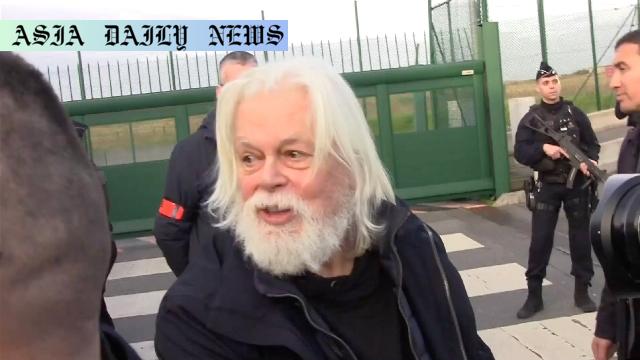Interpol removes anti-whaling activist sought by Japan from wanted list due to new facts and political considerations.
- Interpol removed Paul Watson, an anti-whaling activist, from its wanted list.
- Decision influenced by Denmark’s refusal to extradite him and political considerations.
- Interpol stated that the removal does not judge the merit of Japan’s case.
- Paul Watson continues his activism while based in France alongside his family.

Interpol’s Decision to Remove Anti-Whaling Activist from Wanted List
The announcement that Interpol removed Paul Watson, an anti-whaling activist sought by Japan, from its global wanted list reflects a significant development in the long-standing debate on conservation versus legal enforcement. Watson, known for leading the Sea Shepherd conservation group, was added to the Red Notice after being accused by Japan of directing operations to obstruct their whaling vessels. This legal standoff has spurred international conversations about political bias, ethical environmental activism, and the role of global law enforcement agencies like Interpol in mediating legal disputes with potential political undertones.
Denmark’s Role and International Implications
The pivotal moment in this saga was Denmark’s refusal to extradite Watson in 2022 following his detention in Greenland. According to reports, Denmark’s legal system did not find justification for extradition, prompting Watson’s release. Furthermore, several other countries reportedly declined to act on Japan’s requests, raising questions about the legality and impartiality of the charges levied against him. Interpol’s decision to suspend the arrest warrant in April reflects its careful consideration of these new circumstances, as well as the potential political motivations behind the case. This is a crystallizing moment that questions the boundaries of global legal enforcement.
The Broader Impact on Wildlife Conservation
Since being based in France, Watson has continued his fervent advocacy efforts against whaling and other activities perceived as harmful to marine ecosystems. His determination symbolizes a growing movement within global environmentalism, wherein activists often face legal hurdles while pursuing what they believe to be ethical imperatives. Interpol clarified that their motion to remove Watson was not a commentary on guilt or innocence, but rather a response to procedural shortcomings. This distinction is important for understanding the broader narrative around activism’s intersections with national policies and global agreements, providing some reassurance to conservationists worldwide.
Concluding Thoughts
Ultimately, this case underscores the complexities of navigating justice in a globalized world, especially involving contentious environmental disputes. As Watson continues his activism and governments adjust their enforcement strategies, it remains to be seen how this event will shape future legal and ethical considerations in similar cases. At its core, this is not just a story about one man but a reflection of ongoing global negotiations between conservation ideals and national interests.



Commentary
Ethics Versus Enforcement in Conservation
The decision by Interpol to remove Paul Watson from its wanted list raises complex questions about the intersection of ethics, legal frameworks, and political motivations. On one hand, Watson’s commitment to protecting marine life through his anti-whaling efforts is commendable, representing the passion and determination that fuel conservation movements. On the other, accusations of obstructing Japanese research whaling ships highlight the thin line activists often tread between ethical advocacy and the law.
Denmark’s Influence and Legal Precedent
What stands out in this case is Denmark’s influence in shaping its outcome. By refusing to extradite Watson, Denmark sent a message of skepticism toward the validity of Japan’s request and ultimately influenced Interpol’s decision. This highlights a fascinating precedence where national legal systems and international agencies like Interpol intersect. Such cases often reveal potential imbalances in global legal enforcement, particularly when allegations carry underlying political motivations.
A Broader Lessons in Global Cooperation
As the dust settles, this case serves as a lesson in the delicate balance required for global cooperation. Environmental activists like Watson emphasize the urgency of protecting our planet, but their methods and legal challenges spark broader debates about accountability, impartiality, and the role of advocacy in inspiring change. By removing Watson from the wanted list, Interpol has essentially opened a critical dialogue about balancing justice, fairness, and the right to protest.